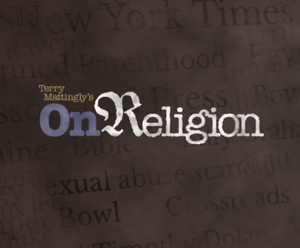
Ever since the Last Supper, Catholics have pondered what happens during the Mass when they believe the bread and wine become the Body and Blood of Jesus.
“Because Christ our Redeemer said that it was truly his body that he was offering … it has always been the conviction of the Church … that by the consecration of the bread and wine there takes place a change of the whole substance of the bread into the substance of the body of Christ our Lord and of the whole substance of the wine into the substance of his blood,” proclaimed the Council of Trent, after the Protestant Reformation.
“This change the holy Catholic Church has fittingly and properly called transubstantiation. The Eucharistic presence of Christ begins at the moment of the consecration and endures as long as the Eucharistic species subsist.”
Believers approach this mystery with the greatest care and respect. This may be hard for children to grasp as they prepare for First Communion.
Now imagine trying to teach this core Catholic doctrine to persons — young and old — who have mental and physical disabilities that make it hard, or impossible, for them to acknowledge what is happening in the Mass.
“Because we believe Holy Communion is the Body and Blood or our Lord, we want to be very careful about this,” said Father Matthew Schneider, who is known to his Twitter followers as @AutisticPriest.
“This isn’t a theology test. No one needs a theology degree to take Holy Communion. We simply need to make sure that they know this is an act in a church rite — that they are not eating ordinary food like at home. We’re trying to find out if they have a basic understanding of what’s happening.”
Under Catholic canon law, children can be given Holy Communion “if they can distinguish the body of Christ from ordinary food and receive communion reverently.”
Schneider noted that U.S. Conference of Catholic Bishops guidelines state that some individuals — because of their disabilities — may need to communicate this understanding “through manner, gesture or reverential silence rather than verbally.”
This discernment process can be emotional, complicated and even painful. Thus, the bishops encouraged priests to “consult with parents, those who take the place of parents, diocesan personnel involved with disability issues, psychologists, religious educators and other experts in making their judgment. If it is determined that a parishioner who is disabled is not ready to receive the sacrament, great care is to be taken in explaining the reasons for this decision. Cases of doubt should be resolved in favor of the right of the Catholic to receive the sacrament.”
This is a topic close to Schneider’s heart, since he was diagnosed as autistic two years after his ordination to the priesthood in 2013. He has paid close attention to how Catholic clergy and educators minister to people all along the autism spectrum, while personally wrestling with what used to be called Asperger’s syndrome.
“Some autistics – who don’t adapt to this neurotypical world too well – really can’t go through the normal sacramental preparation class,” he wrote, in an online commentary on this topic. “It’s just not going to work. I went through all the pretty much normal ones as a kid, but I can see a lot of other autistics really struggling with that.”
Under normal circumstances children receive First Communion after completing an education process that leads to the confession of sins, in what is now called the Sacrament of Reconciliation. However, children with disabilities may struggle with this process or find it impossible, depending on their ability to communicate.
Father Schneider stressed that this is when parents and pastors should seek help from specialists at their local diocese, or a nearby archdiocese, who can help them find the proper materials and teaching methods for each special-needs child. For example, there are now flipbooks and picture-card sets that — without words — explain the symbols and rituals in a Mass.
One “Communion Is Not the Same as Food” puzzle set uses simple images to help children distinguish between the Eucharist and “home food.”
“Sometimes ordinary human communications can simply break down,” said Father Schneider. “Pastors and parents have to find a way to stay on the same page while handling these sensitive issues.”













